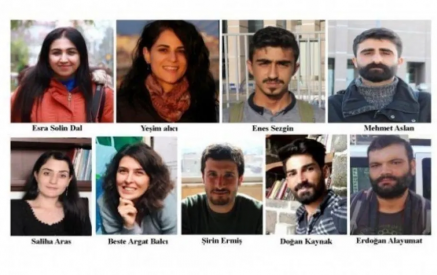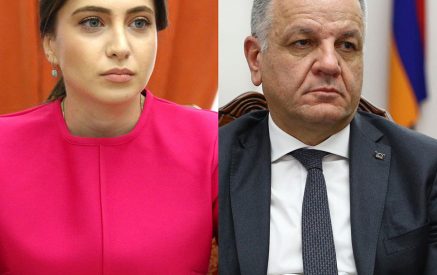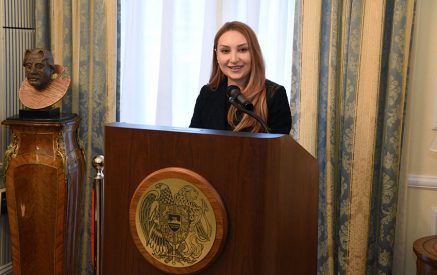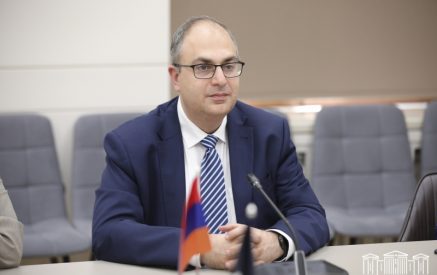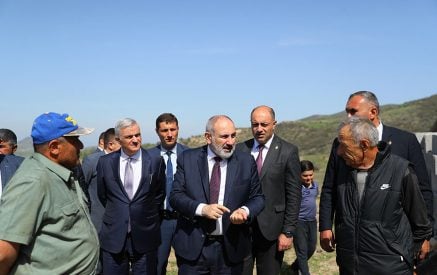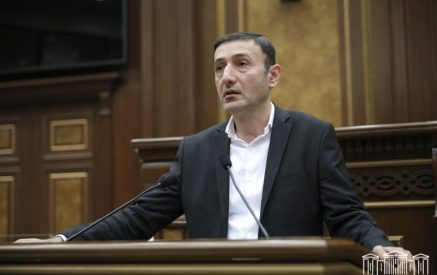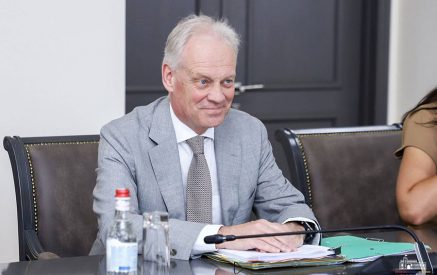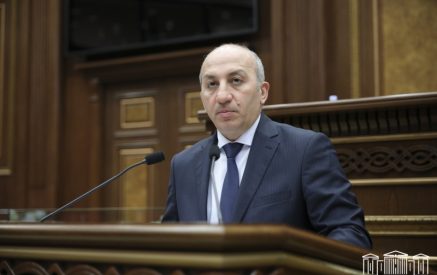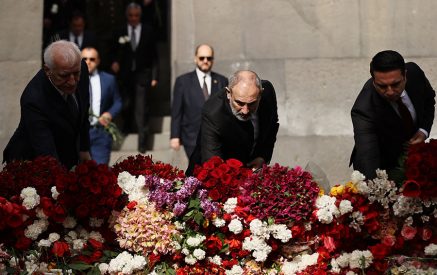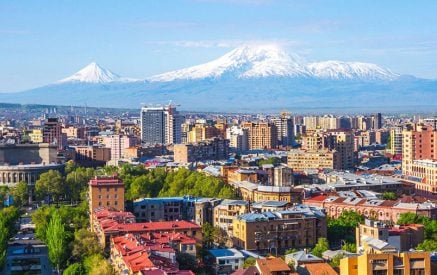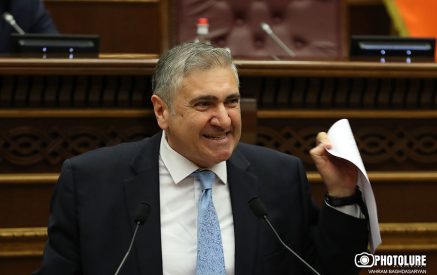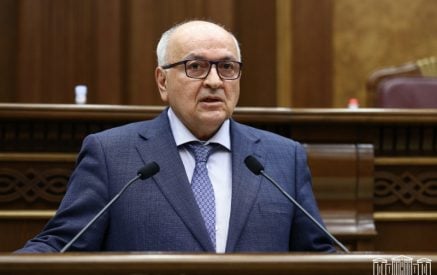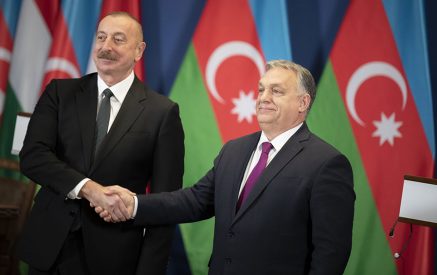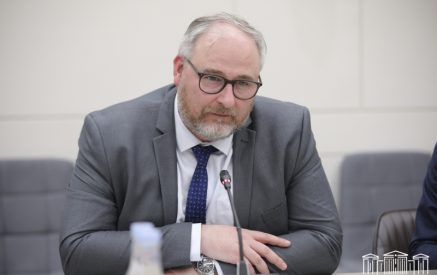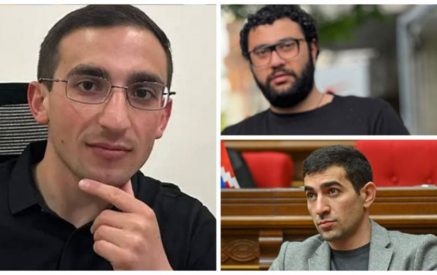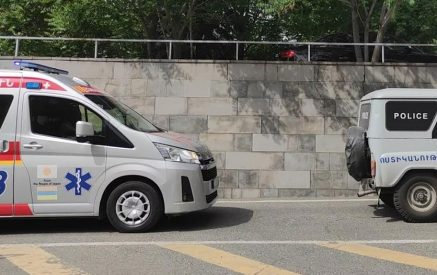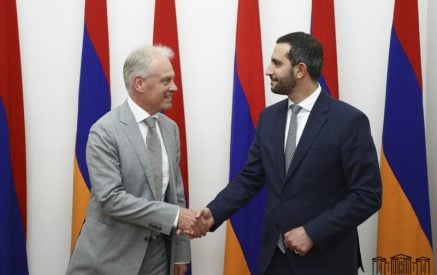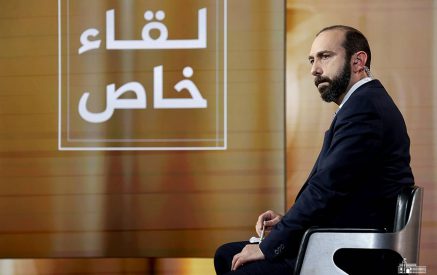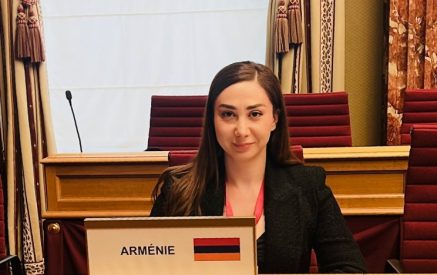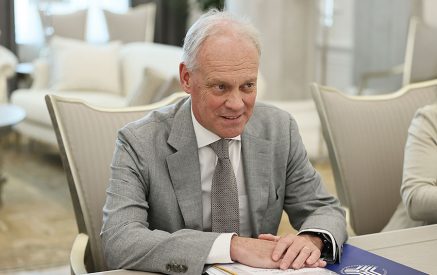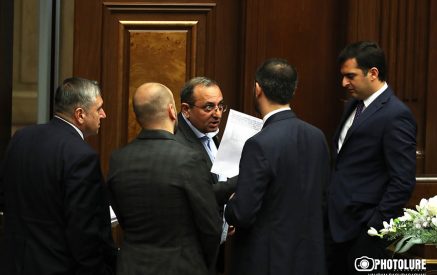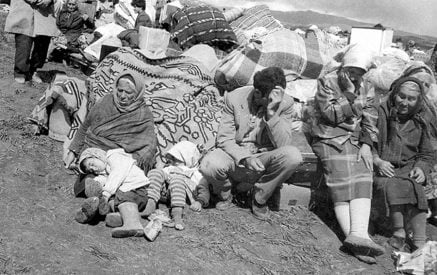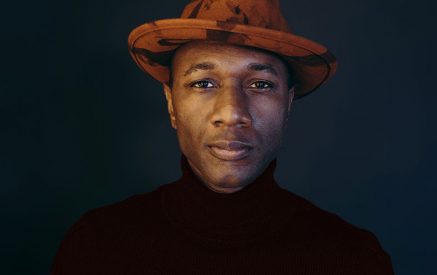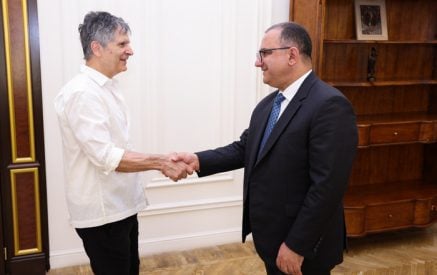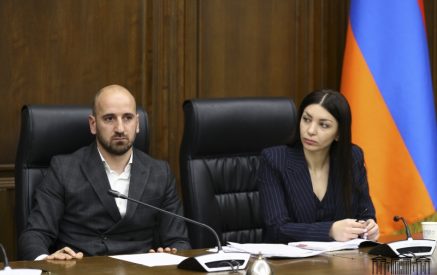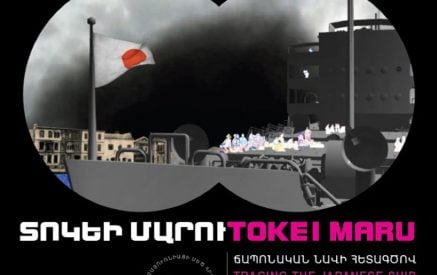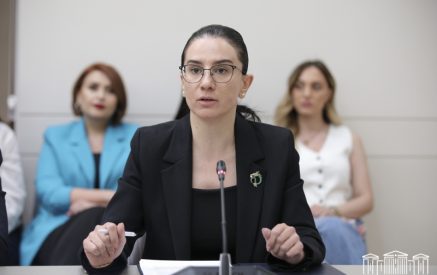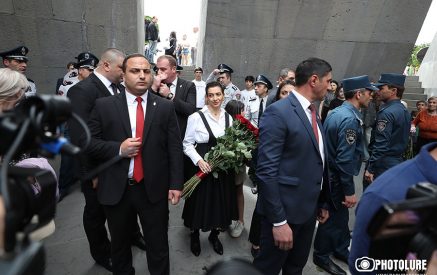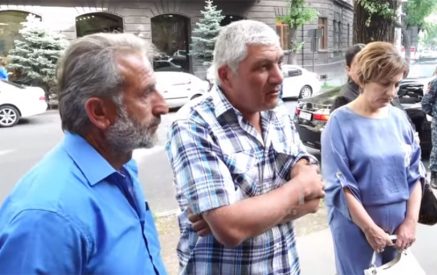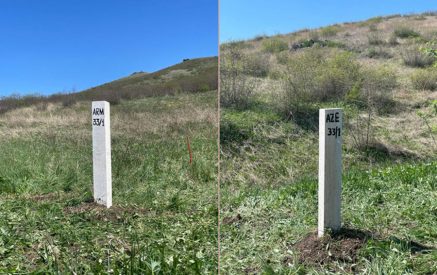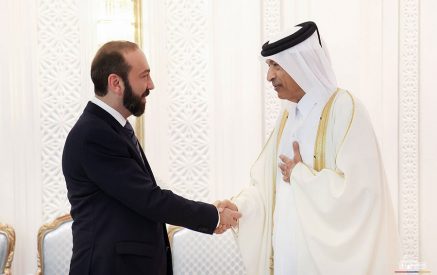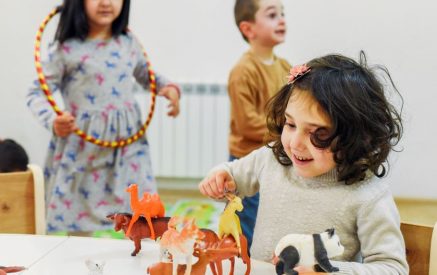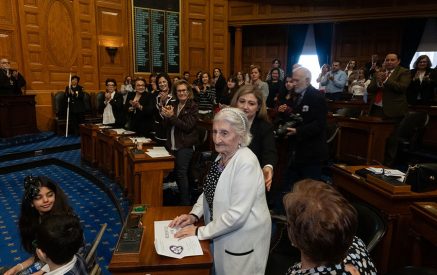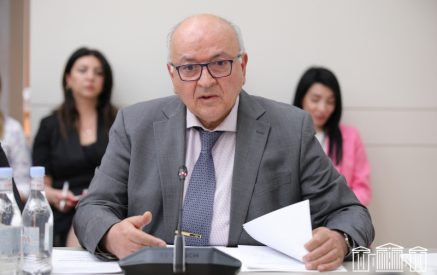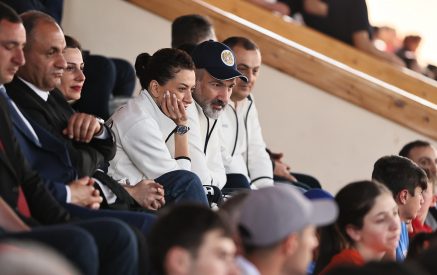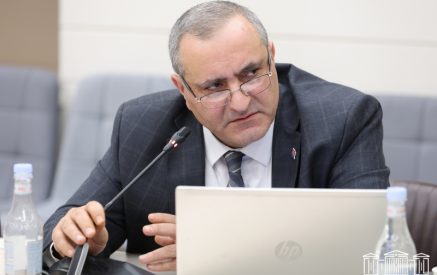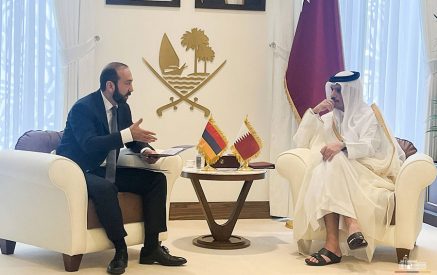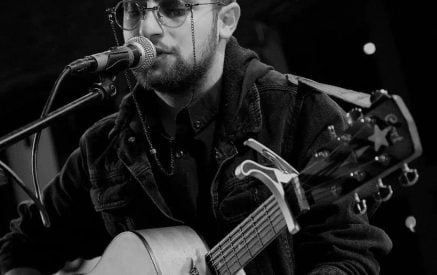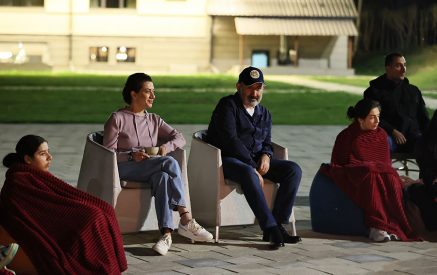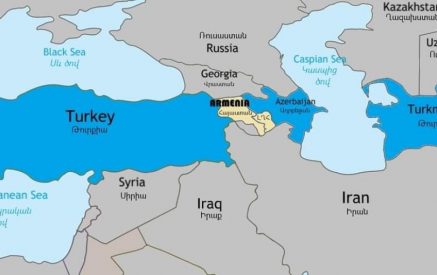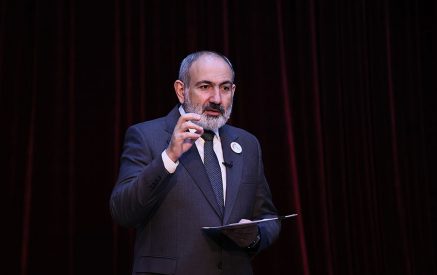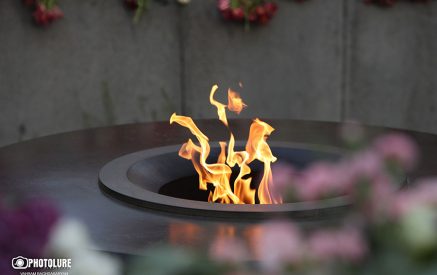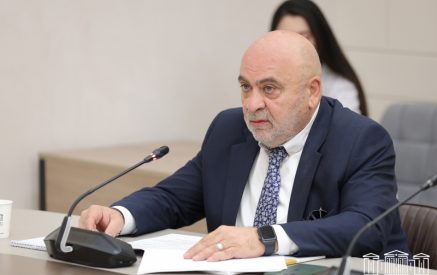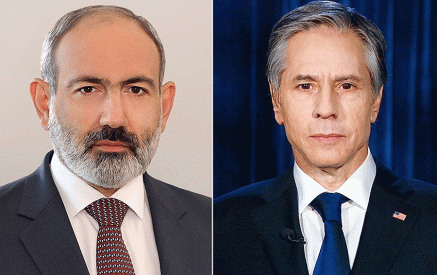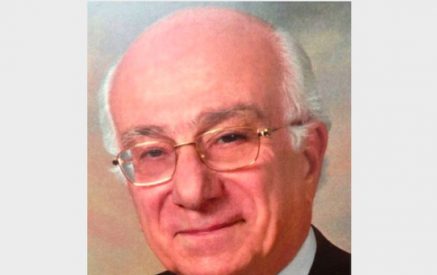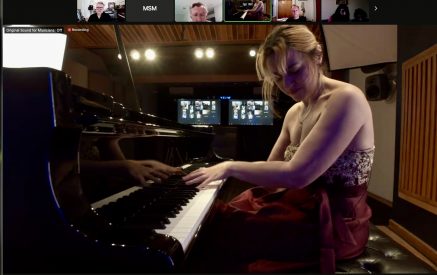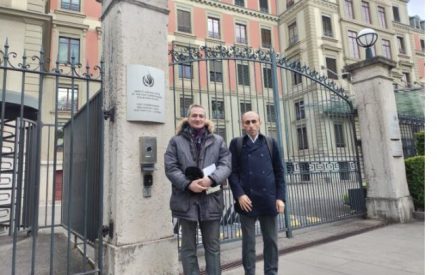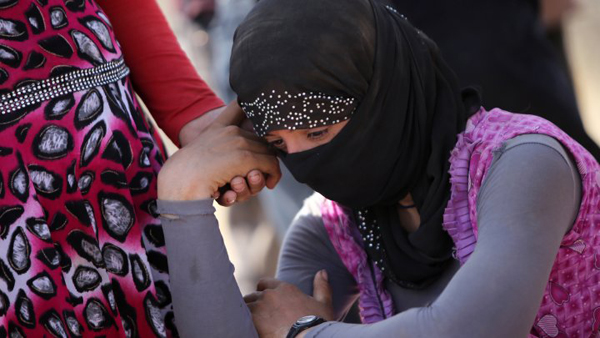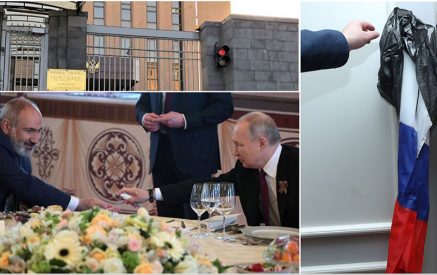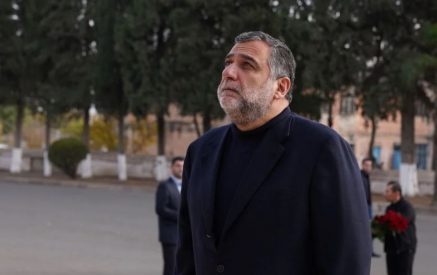A Yezidi woman was ill-treated both in the public and in the family
An ethnic Yezidi by the name Shake (not her true name) comes to Yerevan from one of the Aragatsotn marz communities several times a week to sell milk, yogurt, and cheese. Every time before getting on the bus, Shake prays Good in mind so that no one of the passengers would say a bad word to her. The 35-year-old Shake says that she transports the dairy products in glass containers, well-arranged in two large bags, and she is trying to place them in the bus so that they do not bother anyone. However, it happened a few times when one of the passengers’ leg hitting the containers of the yogurt has said, “ooh, we are already sick and tired of this Yezidi woman’s jars.”
Shake cannot understand why some Armenians emphasize her origin, her identity of being a Yezidi. “If they were worried about my yogurt jars, they can just say that we are sick and tired of these jars instead of emphasizing my nationality. What a wrong thing has the Yezidi done to the Armenian? In addition, Armenians also get on the bus with the same jars, but they do not say that we are sick and tired of these Armenians’ jars.” Shake tells that she had no problems with her Armenian neighbors and friends, but sometimes she comes across to such a discriminatory treatment, which upsets her much. “When I come to the city, there is a location where I am selling my stuff, almost everyone is happy, but there are some who look at me with contempt. Once, one of my customers talking to her acquaintance on the street praised my prepared yogurt, well, she want to gather more customers for me. All of a sudden, I listened with half an ear this acquaintance saying, “I will not buy yogurt from a Yezidi.” I hear a lot of these type of things and I do not understand what the reason is. If they think that it will not be clean, yes, but Armenians can also make a bad yogurt or it might not be clean. What has the ethnicity do here?”
Shake says that sometimes she hears such expressions that the people who voice them as if are trying to especially demonstrate their negative attitude towards the Yezidis. These expressions are painful and offensive for Shake. “Once, in a store, I heard that an older Armenian woman told to the other one standing next to her, look at this damned Yezidi, she is pretty beautiful. Could you tell that she is a Yezidi?” says Shake and adds, “Why do they make this differentiation? Why? Are the Armenians the most beautiful ones? There are both beautiful and ugly ones in all nations.” Boris Murazi, the President of Sinjar Yezidi National Union NGO, in the conversation with us, noted that there is no discriminative attitude towards the Yezidis in Armenia at the official level, while in the everyday life, such manifestations sometimes happen. Boris Murazi says that sometimes discrimination against the ethnic Yezidis happen at the level of a mid-circle official. “But there is no directed discriminatory policy at the state level.”
As presented by the President of the NGO, the elements of such discrimination are mainly expressed in the developing societies. “For example, a discrimination is entered between Gyumri and Karabakh people and so on. In other words, there is discrimination within Armenians too.” Boris Murazi remembers the attitude of some Armenian officials towards the Yezidis, which describes to some extent domestic and somewhat official manifestation. “In 2013, lawmaker Manvel Badeyan stated, “Are not Yezidi”, the others were the CES employees, this event raised a clamor, now, the judicial process is on, the CES officials have beaten the Yazidi woman and her son and have said, get out, your Yezidi….” Shake, in addition to encountering a couple of discrimination, she also encounters discrimination in her community and by her relatives. Although Shake finds it difficult to describe the attitude towards her a discrimination, but she believes that the way she was treated is not fair and humiliating.
Shake tells that still studying at school, in the last grade, the neighboring boy of their village had fallen in love with her, which was expressed through the mediators, but the boy had not met with Shake nor personally told her about his love. “Oh, when I recall this story, all my body starts trembling of what I had experienced, only God and I know it. This boy’s mother had a status and had said, I would never let a Yezidi girl to be my daughter-in-law, keep your girl away, and my parents said, we are not going to give you our girl. I was not allowed to leave the room and the house for days. When my father was talking to me, I was shaking with fear. Without finishing the school, I was married, naturally, to a boy from my nationality. I could not say that I do not love nor organize my life the way I want to. This is the way the things are going in our life, the elders decide our fate instead of us.” Shake describes her husband, “he was not a successful one, he was cruel and brutal.”
This woman tells that her husband was leaving for migrant work to Russia from time to time, and every time on returning, as Shake says, “The cruelty was doubled.” “He was beating me and was displeased with the meal I was cooking, the laundry, and everything. He used to say, if you do not behave yourself well, I will send you to your Armenian boyfriend. But what a boyfriend, what a thing, he had just heard that during my school years, our Armenian neighbor boy liked me, just it and nothing else and he was constantly reminded me about it. What should I do? I was my fate and I had to obey silently. Once, he hit me so strongly in the presence of my daughter that my poor child was holding my feet in fear, she was crying and begging the father to stop beating me. Because of these beatings, my child began wetting the bed at nights.”
President of Sinjar Yezidi National Union NGO Boris Murazi says that in the Yezidi community, the marriage with the representative of another nationality is banned not only for Yezidi women but men too. The woman who will marry to a non-Yezidi man will no longer be acceptable in the community, she would not be a follower of Yazidi faith and will not enjoy respect. Boris Murazi says that early marriage of women in their community and the right to education is a serious problem. Now Shake is raising her only daughter alone, her husband died in an accident 2 years ago. Shake does not even dare to think about happiness and a new marriage, she says that she dreams of a better life for her daughter, and will do everything to give her education. “She will marry to the one she is in love with and when she wants to be married. I have experienced this misfortune on me and I will not allow my daughter to experience the same fate.”
Nelly BABAYAN
P.S. The material was prepared in the frames of Rapid Response Unit of the “Society without Violence” NGO.

